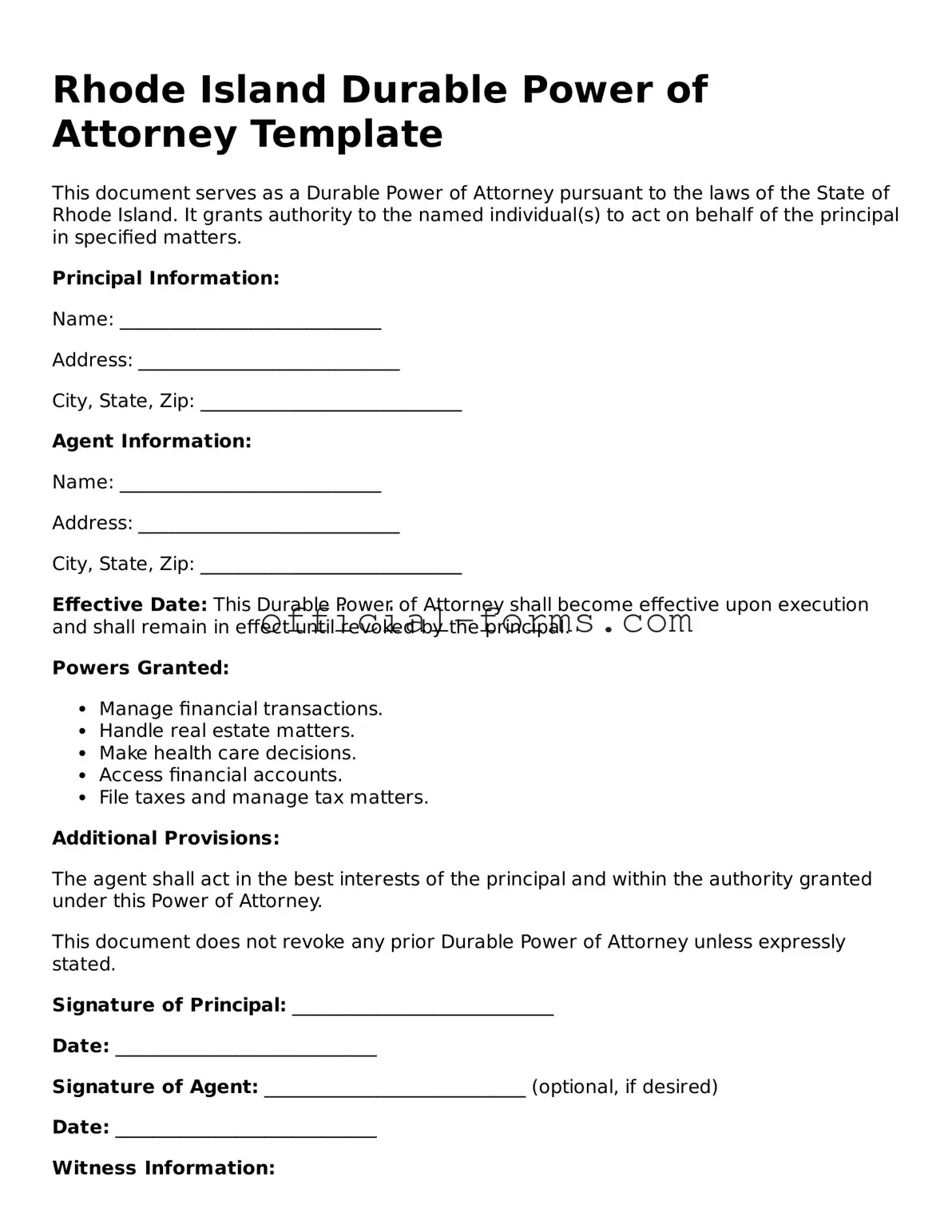Official Rhode Island Durable Power of Attorney Document
A Durable Power of Attorney in Rhode Island is a legal document that allows an individual, known as the principal, to appoint someone else, referred to as the agent, to make decisions on their behalf in the event they become incapacitated. This powerful tool ensures that personal, financial, and medical matters are handled according to the principal's wishes. Understanding its nuances is essential for effective planning and peace of mind.
Open My Durable Power of Attorney Now

Official Rhode Island Durable Power of Attorney Document
Open My Durable Power of Attorney Now
Don’t leave your form incomplete
Finish Durable Power of Attorney online quickly from start to download.
Open My Durable Power of Attorney Now
or
➤ PDF
